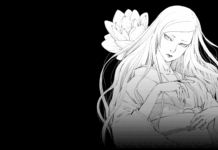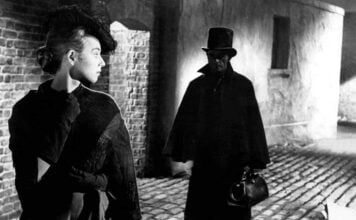Few filmmakers manage to be as richly conceptual and methodically precise as Japanese auteur Kiyoshi Kurosawa. Of his contemporaries, he shares the most DNA with Canada’s David Cronenberg and Austrian Michael Haneke, the three writer/directors infinitely obsessed with crafting disturbing horror/thrillers in their own inimitable styles. Though they each possess uniquely rigid forms, they are joined by their love of genre and how they can push it beyond the confines of their established rules while also looking to shock and scare wherever possible. These are not necessarily “fun” genre movies, but despair can have its entertainment value as well.
Kurosawa’s new film Cloud harkens back to the director’s earlier genre-defining work with Cure (1997) and Pulse (2001), two disturbing landmarks of horror cinema. However, Cloud takes a different approach by hiding the more terrible elements of its story and letting them stew until they boil into violence later on. That’s not to say that nothing happens before the film explodes into absurd action, but it purposefully meanders until it needs to hone in on the nefarious machinations happening beneath the surface.
The setup is distractingly simple, as Ryosuke Yoshii (Masaki Suda), an internet reseller, makes one of the biggest profits of his life. This prompts him to expand his operation and make a better life for himself, quitting his day job and moving to the countryside with his girlfriend Akiko (Kotone Furukawa). What begins as a normal and innocuous change of scenery soon turns nasty as bizarre occurrences begin to plague Yoshii. Odd visits, vandalism, and strange traps appear wherever Yoshii goes, leading him towards a path of destruction he has unbeknownst paved himself.
Kurosawa is no stranger to the horrors lurking within the internet, having crafted a magnum opus of dread with Pulse. In that film, characters were invited to a website where they could see a ghost, an invitation which, if accepted, led to a particularly disturbing form of haunting tailored for the 21st century. This supernatural take on the mysteries of the internet was the perfect foil for Kurosawa’s apocalyptic vision of a world unraveling through isolation and technological dependence. Cloud shifts its focus to the everyday, and seemingly inconsequential, operations of the internet, where one person’s actions can affect a whole world of lives throughout the web. No less apocalyptic than Pulse, Cloud goes for the jugular rather than the soul, exposing how an individual’s wish to gain profit and independence comes at the cost of another’s tragic loss.
This might seem way too conceptual a theme, but Kurosawa, as he has expertly achieved before, imbues the proceedings with macabre humor, bursts of violence, and genre thrills. With his signature tracking shots and precise compositions, Kurosawa builds tension through sparse and sometimes uncomfortably mundane conversations. Yoshii’s actions are rendered inoffensive if distant and inconsiderate. His focus lies on himself and his profits, and thus what he can buy with said profits. Capitalistic and individualistic to a fault, he nevertheless wants to take his girlfriend Akiko along for the ride, though she seems to just be another possession rather than an actual partner. Yoshii’s interactions with Akiko and other acquaintances are all somewhat stilted and monotonous, Kurosawa dragging out scenes to make the audience as uncomfortable as the players themselves.
The monotony comes to an abrupt break once Yoshii’s new assistant Sano (Daiken Okudaira) reveals that there are online threads dedicated to discussing Yoshii’s persona “Ratel” and his whereabouts. This is where the film shifts to a twisted thriller, Yoshii’s newfound independence turning into a race for survival. The film maintains the same deliberate pace as the first half, but with a heightened sense of tension, dread, and even action. That is, action done the Kiyoshi Kurosawa way. Sudden bursts of violence are shockingly banal, the orchestrators of revenge tremendously unequipped for the kind of bloodletting such actions require. Blunt sound design and naturalistic cinematography add to the mundane and humorous brutality, making for an absurdist piece of action filmmaking that will stick with audiences as much as any of Kurosawa’s past horrors.
Cloud can be a challenging watch while Kurosawa plants the seeds for the second half, but once the shooting starts that first half comes into even sharper focus. The apocalyptic vision this time is not of existential demise but of the inherent damage of everyday capitalistic gain. Yoshii, brilliantly and stoically played by Suda, is not so much an evil person but rather a passive player in a system designed to benefit some and bury others, a fact to which he is blissfully, and willfully, ignorant. Kurosawa thus brings another unique vision of a hopeless and despairing world that can bring about its own destruction with the click of a button. He does this with a heightened, bleak, and absurd story whose absurdity might seem more realistic the more one sits with it.
Cloud is now playing in select theaters.













